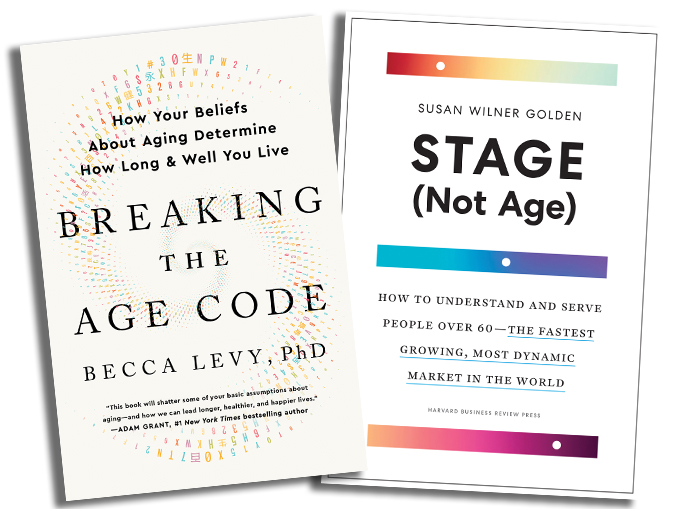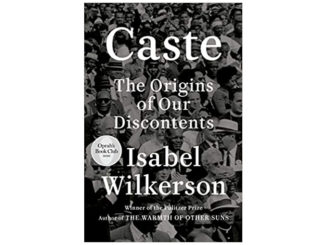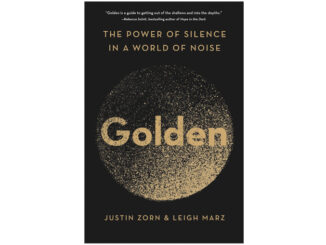Reviewed by Susan Fader, FaderFocus, New York Metro, susanfader@faderfocus.com
It is human nature to categorize. Toddlers innately group by colors or shapes to help see patterns and create order. Companies and brands create different consumer profiles to help them identify key demographic and personal attributes that they hope will help guide them in targeted marketing. However, the baseline assumptions that companies use to segment people may not match the evolving reality of how people live, how they self-perceive, and the expanding opportunities they can choose from as they get older.
Two new books, Breaking the Age Code: How Your Beliefs About Aging Determine How Long & Well You Live, and Stage (Not Age): How to Understand and Serve People Over 60, explore the many negative ageist perceptions that constrain business opportunities within this older market, as well as an individual’s health, happiness, and opportunities as they get older. The two books are both well written and are complementary reads as they focus on different aspects of this topic.
Stage (Not Age) points out the importance of these two books, since “soon, older people will outnumber younger people virtually everywhere except Africa… and, by 2035, people over 65 will outnumber people under 18 in the United States.” The author, Susan Wilner Golden, is an expert on innovation and the unique entrepreneurial opportunities that longer lives and the growing $22 trillion longevity economy present. Her book is a very well-thought-out blueprint for businesses on how to reset their understanding of what an “old person” is.
Golden’s thesis is that “the classic view of modern life was one of three stages: learn, earn, retire” no longer works. She believes as people live longer lives—with an explosion of people reaching 100 years old—instead of retiring, there are now multiple stages of aging. “Stage” is the central idea in this book. In the beginning of Stage, Golden emphasizes the need to start thinking of age in stages instead of a one-dimensional demographic. She does this by sharing an example of three different 70-year-olds who may be the same age but are at radically different stages—one a Grand Prix race car driver, a second who is a widow with chronic conditions, and a third who has just started a new clothing company. Then, throughout the book, Golden outlines her vision of the different stages of aging and where there are business opportunities. Her “Recommendation” section at the end of each chapter is very helpful in summarizing chapter key points.
While Stage (Not Age) was more business opportunity-focused, Breaking the Age Code, by Becca Levy, is directed more to the individual who wants to have a healthier mindset around the aging process—someone in their 20s is just as likely to get a benefit from reading this book as someone in their 60s.
Levy, a leading authority on how beliefs about aging influence aging health, explores the self-stories people may tell themselves about what is and is not proper behavior as we age. She also explores the biases and prejudices that we may unwittingly be inflicting on ourselves, because “we are all exposed to songs and stories full of ageist caricatures.” One negative stereotype she points out is that “35 percent of all doctors think it is normal for older people to have high blood pressure (it is not).” The book’s goal is to “shift from an age-declining mindset to an age-thriving mindset,” and she definitely lays out a very convincing argument that should help transition anyone into a more positive age-thriving mindset. I highly recommend also reading the appendix, which provides an overview of the ABC Method (Awareness, Blame, Challenge) to Bolster Positive Age Beliefs; Ammunition to Debunk Negative Age Stereotypes; and A Call to End Structural Ageism.
“Shift from an age-declining mindset to an age-thriving mindset”
—excerpt from Breaking the Age Code“The classic view of modern life was one of three stages: learn, earn, retire—which no longer works.”
—excerpt from Stage (Not Age)




